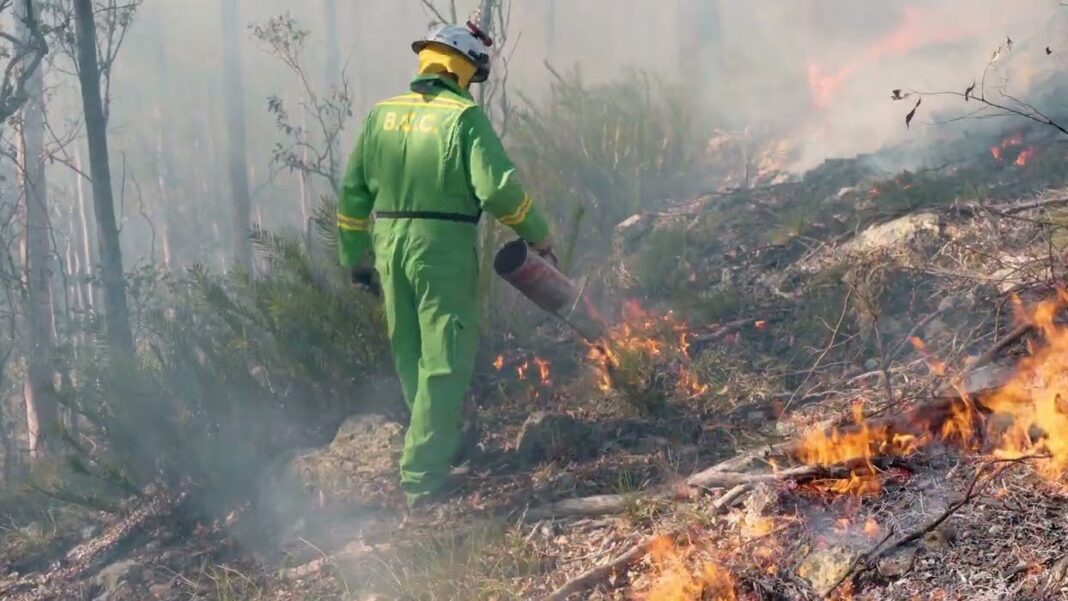Portable air purifiers fitted with high-efficiency particulate air (HEPA) filters can substantially improve indoor air quality during bushfire events, according to new research from CSIRO.
Public Health Research and Practice researchers found that HEPA filters have the potential to substantially improve indoor air quality by 30–74% during smoke episodes caused by prescribed burns.
The findings could help protect 2.7 million Australians currently affected by asthma – and around 7 million more at elevated risk of developing health problems during extreme smoke events.
Previous research has reported an increase of 44% in patients reporting asthma symptoms and presenting to emergency departments over one week during the Black Summer bushfires in January 2020.
While agencies often recommend vulnerable individuals use portable HEPA filters to reduce their exposure to smoke and stay inside, there has also been limited evidence that air purifiers fitted with HEPA filters reduce exposure or health risks to delicate particulate matter or PM2.5.
Lead author and CSIRO scientist Dr Amanda Wheeler said the results provided a strong point of evidence for agencies tasked with providing advice to the public during extreme smoke events.
“Staying inside and closing windows and doors during extreme smoke events is important, but ultimately what protects against smoke pollution indoors are air purifiers fitted with HEPA filters,” Dr Wheeler said.
“Using more than one, if possible, inside houses is likely to lead to improved health outcomes,” she said.
“While the research was focused on prescribed burns, the findings are generally relevant for protection during bushfire events.”
“They demonstrate that any smoke emissions, including from wood heaters in neighbouring houses, can be managed better.”
These conclusions were drawn by monitoring indoor and outdoor concentrations of PM2.5 during prescribed burning periods.
Researchers calculated improvements to indoor air quality in nine homes when operating a HEPA cleaner during a smoke episode.
The effectiveness of the HEPA filters also depended on whether the house complies with the national construction code.
Houses with a tighter envelope (less leaky) are more efficient in stopping the infiltration of outdoor smoke.
Dr Wheeler said bushfires were the greatest threat to air quality in Australia, with climate change increasing the complexity of bushfire mitigation.
Fire managers rely on prescribed burns to reduce fuel loads and mitigate the hazard of uncontrolled bushfires.
Increased temperatures due to climate change are leading to increased fire events which cause smoke pollution.
Climate change also extends the summer bushfire season in southern Australia, potentially prolonging smoke exposure and associated adverse health effects.
“Prescribed burns are an important part of fire management, but outdoor smoke can easily infiltrate homes and buildings, so we must find ways to protect populations from serious health impacts,” Dr Wheeler said.
More important facts.
- Air quality in Australia is generally good, but extreme events such as bushfires and wood heater emissions in urban areas can reduce air quality.
- A previous CSIRO study showed that extreme fire weather days have increased in Australia by 56% over the last four decades.
- The 2019-20 Black Summer bushfires exposed at least 80% of the Australian population to smoke pollution, significantly associated with 417 deaths.
- Research from the University of Tasmania has shown around one-third of the Australian population is at elevated risk of developing smoke-associated illnesses during extreme smoke events. These include individuals with respiratory and cardiovascular diseases, the young and older adults.
- A range of portable air cleaners (air purifiers) are available to Australian consumers but require a fitted HEPA filter to reduce particulate matter indoors and trap harmful smoke effectively.
- The Bureau of Meteorology issues fire weather warnings to alert the public when conditions are likely to be dangerous.






